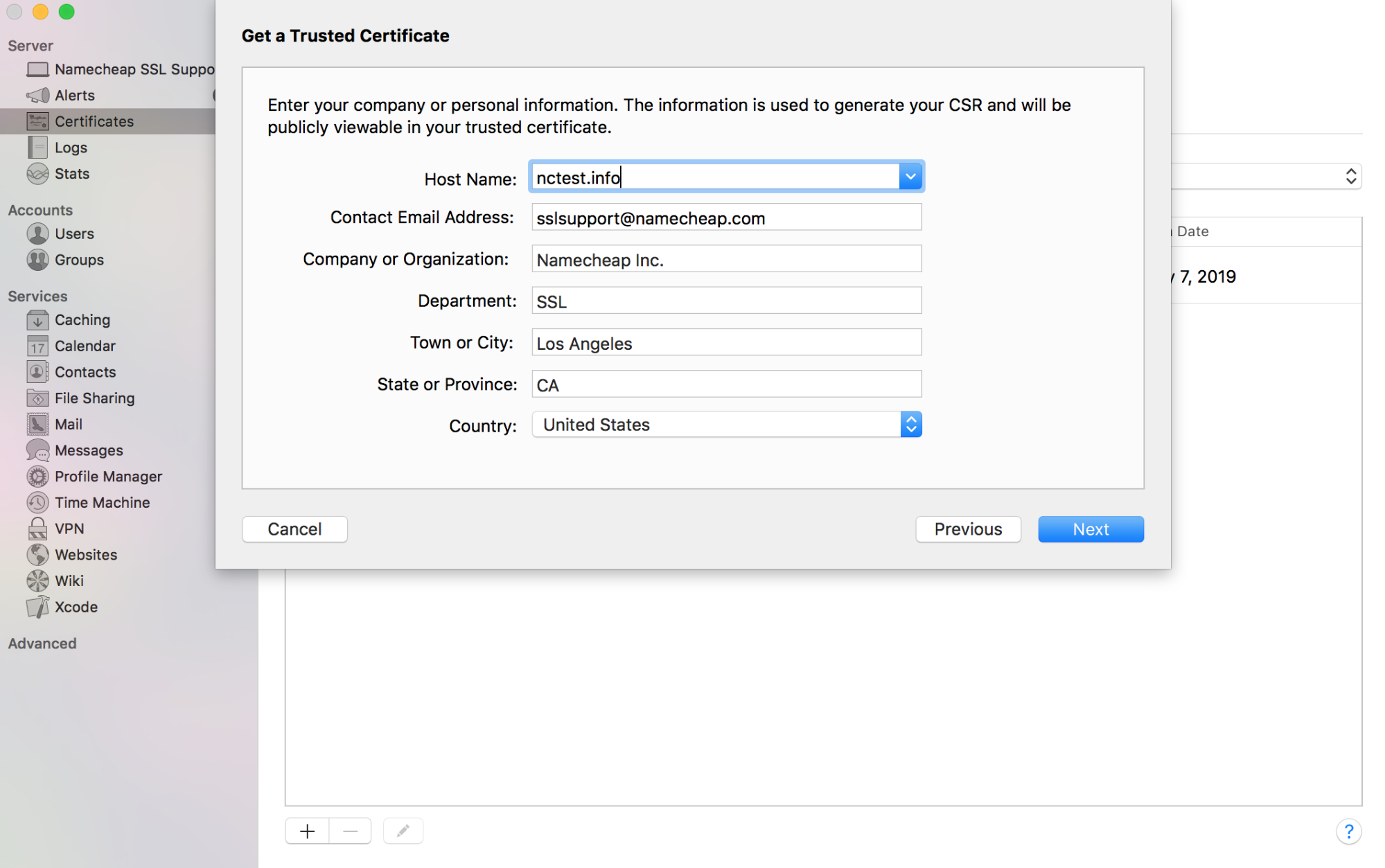To generate a CSR code on your Mac OS X server, you will need to log into your server first.
- In order to do this, open “Finder”, find the “Applications” section and choose “Server”:

- Select the server on which you are going to install the certificate:
-
-
- “This Mac – YourServerName” to generate the CSR code on the same server.
– Select the “This Mac – YourServerName” option
– Enter your Administrator Name as well as Administrator Password and hit “Allow” to proceed. - “Other Mac” to generate the CSR code on another server.
– Select the “Other Mac – YourServerName” option and hit “Continue”.
– Enter Hostname/IP address, Administrator Name, Administrator Password and click “Allow” to move further.
- “This Mac – YourServerName” to generate the CSR code on the same server.
-
-
- Choose “Certificates” under the “Server” section:

- Choose “Certificates” under the “Server” section:
There you will be able to see the “local” self-signed certificate with the name of your server. This certificate is signed by the server itself, rather than a trusted certificate authority. This type of certificates is not trusted by other applications/operating systems, which may lead to authentication errors. Thus, it is not recommended to use it.
- Click the “+” button on the same page and choose the “Get a trusted certificate” option to generate the CSR code for the certificate activation:

- Click “Next” on the “Get a trusted certificate page”:

- Fill in the fields with the required information. Please keep in mind that the use of non-alphanumeric characters (( ) ` ~ ! @ # $ % ^ & * – + = | \ { } [ ] : ; ” ‘ < > ?) may lead to an error during the activation process in your account, thus, try to avoid using them.- Host Name: domain name (subdomain) you would like to secure (example.com in case with single-domain and multi-domain certificates; *.example.com for wildcard certs)
– Contact Email Address: email address one can use to contact the website’s administrator
– Company or Organization: registered name of your company or organization (if you do not have one, you can use “NA” instead)
– Department: name of your department within the organization ( for example, “IT” or “NA” if you do not have one)
– Town or city: town or city where your company is located
– State or province: state or province where your company is located
– Country: choose your country from the drop-down menu
- Click “Next” to generate the CSR code
- Click the “Save” button to save the generated CSR code. You will be able to open this file any time with the help of TextEdit:

The RSA Private Key is generated automatically along with the CSR. It will be stored in the “Keychain” of your Mac.
Once the CSR code is generated, you can proceed with the activation process of your SSL certificate in your Namecheap account.